Eco Trends & Innovations
6 mins read
Revamp Festival ’25: Inside Lagos’ Sustainable Fashion and Wellness Movement
By Joy Oshiokenoya
September 8, 2025
Experiences from the Revamp Festival 2025 at Madhouse Lagos, celebrating sustainable fashion and wellness. From upcycled clothing and creative workshops to panel discussions, see how young Africans are shaping an eco-friendly fashion future.
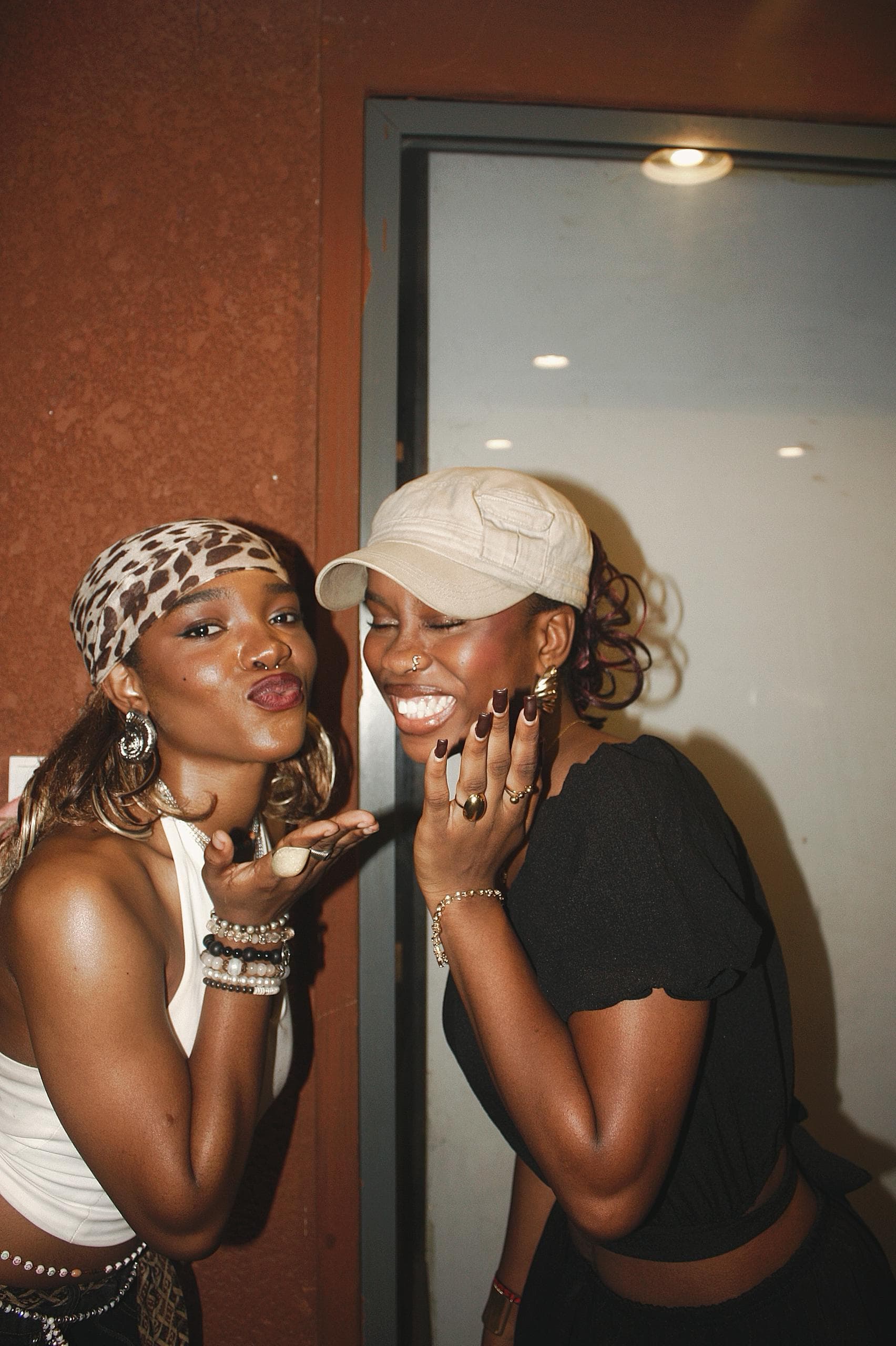
Revamp Festival '25 was a day for promoting sustainable fashion and wellness, with attendees who expressed themselves through their outfits and interaction | Photo Credit: Eric Owoborode.
From the moment I walked into Revamp Festival at Madhouse by Tikera, I knew this wasn’t just another fashion event. Rooted in sustainable fashion and wellness, the festival carried a spark I’d soon recognise as creativity, purpose, and intentionality blending into something spectacular. The building was buzzing with young people, the kind I’d call the Lagos “cool gang,” the ones who make sustainability look effortlessly stylish, and whose presence made the whole place feel electric.
As I made my way around the venue, what stood out immediately was how sustainability wasn’t just spoken about but reflected in the little details. The space itself was a statement. Constructed from repurposed shipping containers, with a ceiling adorned in vibrant textiles and prints, it showed that sustainability could be both practical and beautiful.
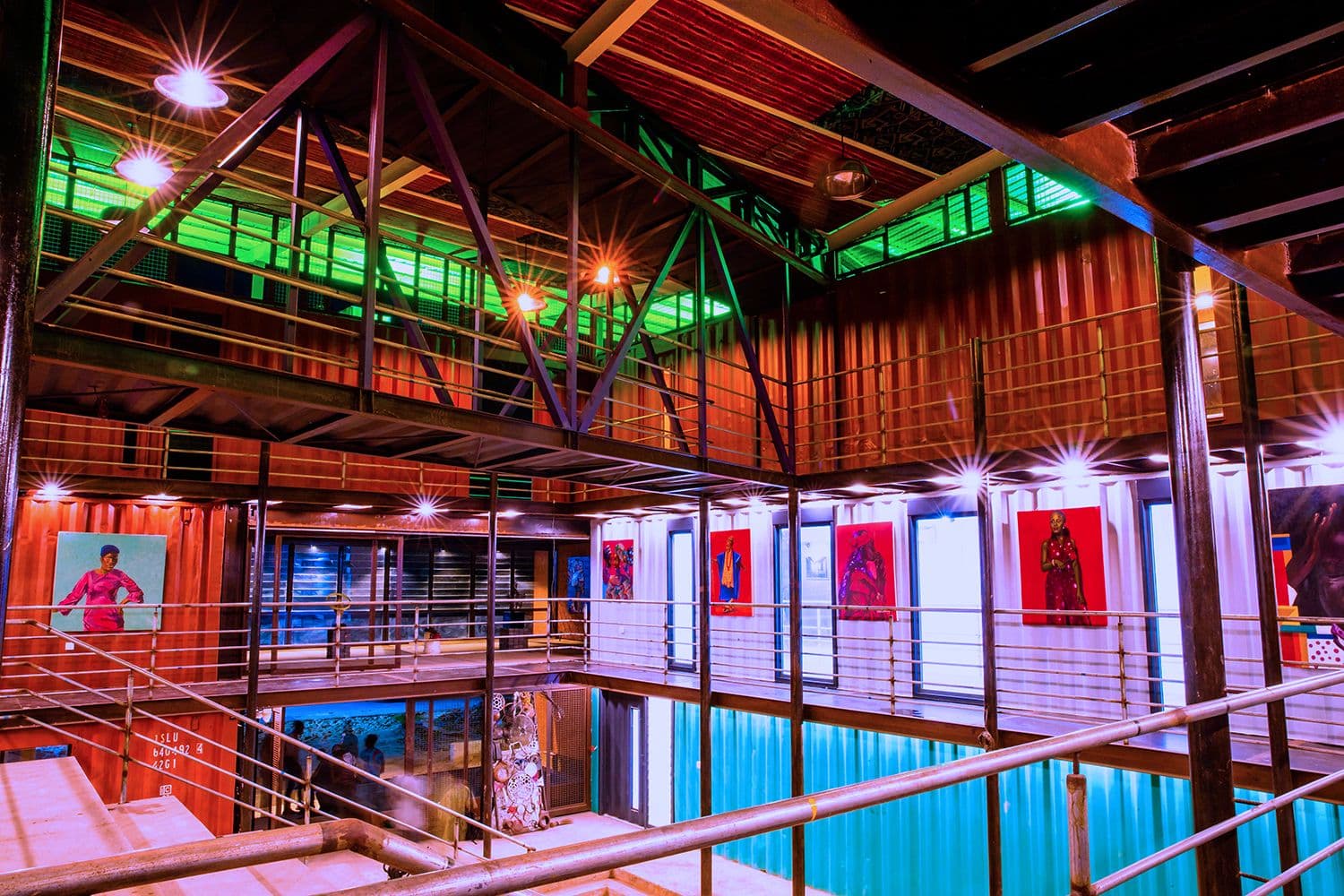
The MadHouse multipurpose hall was the venue for the festival '25 | MadHouse by Tikera.
But the real magic was in the people. They wore the creativity they championed, with handmade and reimagined pieces such as crochet earrings, hand-dyed fabrics, and upcycled dresses, which made the place come alive like a moving art exhibition.
Everyone brought a piece of their creativity to the festival. I wasn’t alone in feeling this way. Ayomide, a first-time visitor, told me,
“The event beat my expectations. I was expecting it to be a normal fashion event where people just talk, talk, talk, but this has been very hands-on and engaging, and I love that I came out today.”
Another attendee, Laju, echoed the sentiment simply: “I love the event.”
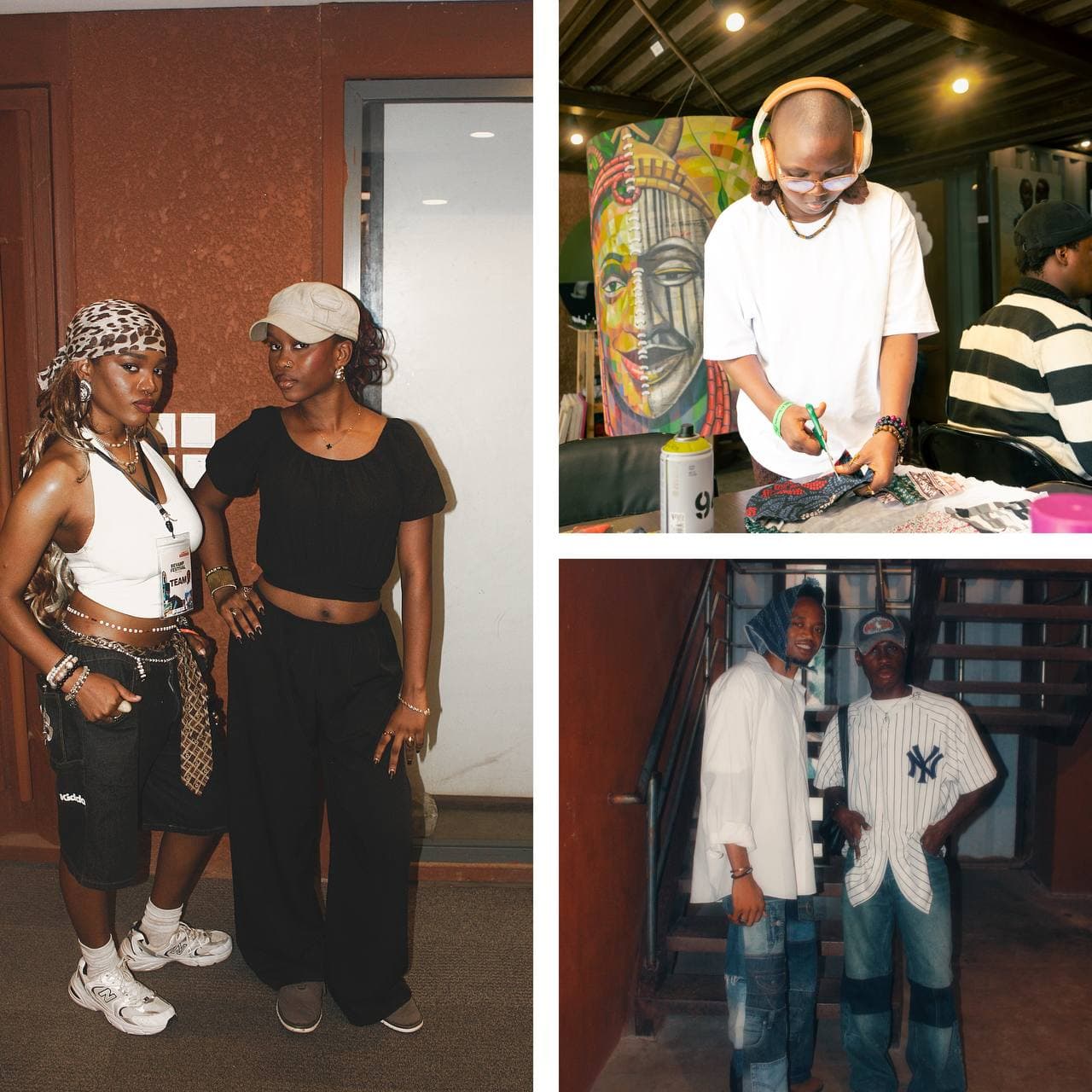
Creative expression was a keyword, and attendees let their personalities shine through their outfits | Images: Revamp Festival - Collage: Threadit.
After a wellness session by Àrà by ÀÁDÙN, which I sadly missed (though the attendees agreed it was the most relaxing escape from Lagos’ chaos), the festival shifted into its workshops.
Attendees spread out to try their hands at weaving with Khadija Dikko, patchwork with Aladimma Uche, tie-dye with host Oluwaseun Oyedele, macramé with Chibuzor/Craftandthelady, and canvas art with Godwin Ajeseni. Each space buzzed with curiosity and joy, as people discovered the beauty of making with their own hands.
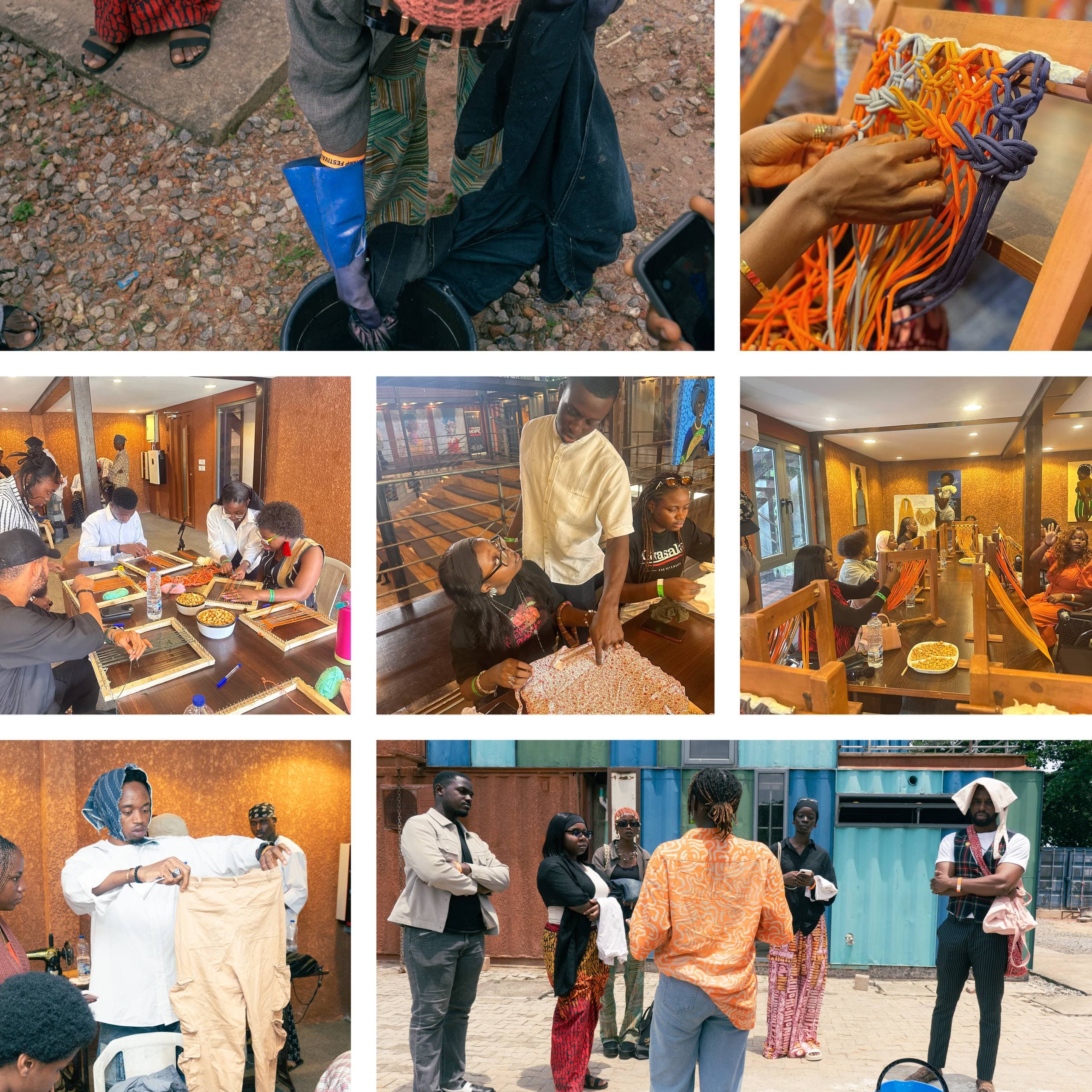
The different workshop stations, weaving, macrame, patchwork, art canvas, and tie and dye, were another avenue where participants got hands-on, while also learning about sustainable fashion | Images: Revamp Festival - Collage: Threadit.
One of the interesting takeaways was how everyone assumed the workshops would be easy. But once they tried, most admitted it was harder than it looked, especially for macrame and weaving. Still, they all agreed it was rewarding and even said it’s something they’d love to keep practising at home.
This is the quiet genius of the Revamp Festival. It doesn’t just talk about sustainability, it lets you feel it in your hands. Each knot, each dye-stained cloth, made upcycling less of a buzzword and more of a lifestyle.
We took a break from the workshop for a panel on the consumer and producer roles in building a circular fashion system, featuring Agosu Moses, Omolabake Anyebe, Lotanna Onyekwelu, and Tise Aro. Listening in, it became clear how crucial all sides are in shaping a sustainable fashion future.
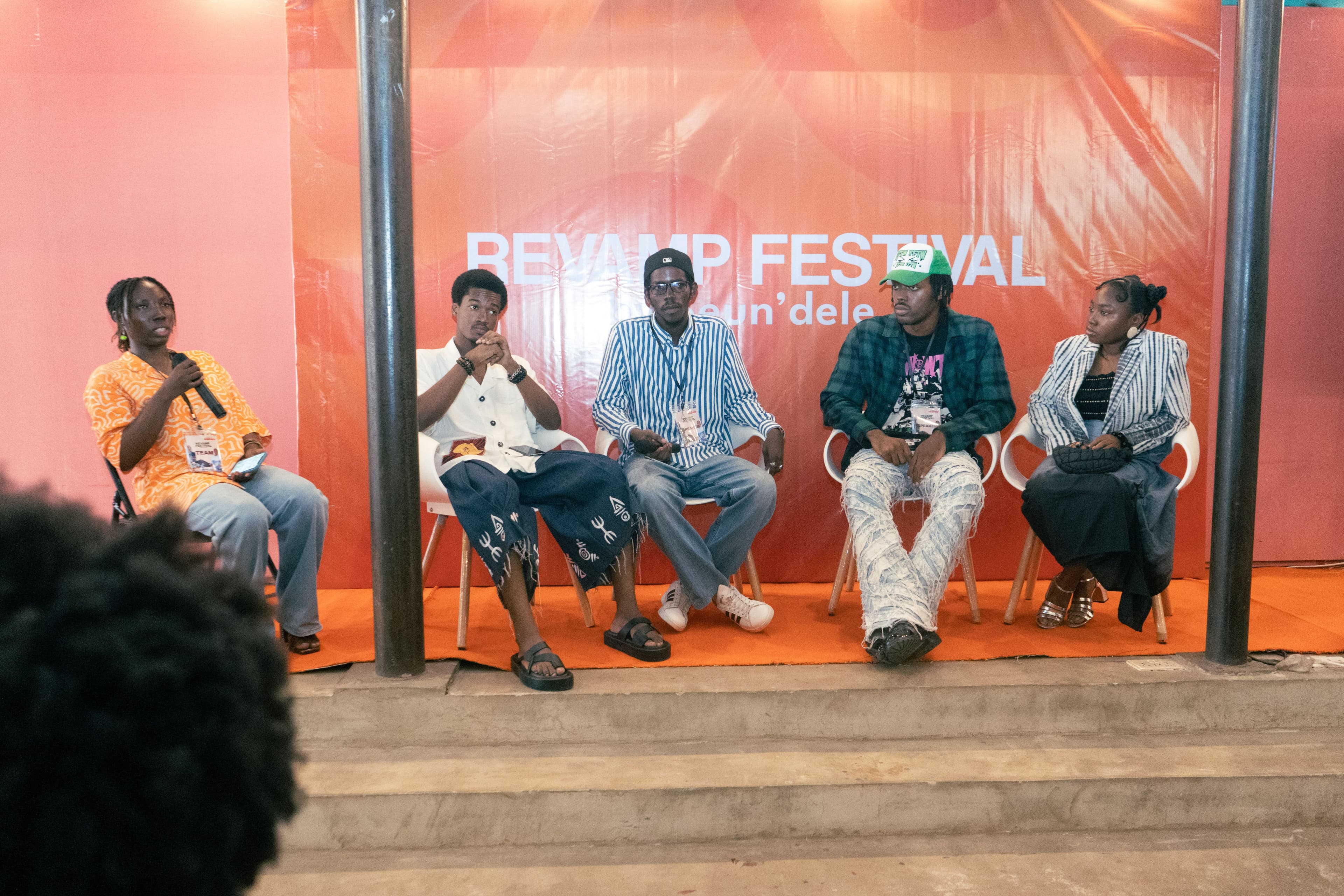
L-R: Oluwaseun Oyedele, Agosu Moses, Tise Aro, Lotanna Onyekwelu, and Omolabake Anyebe | Revamp Festival.
After the panel came a short Q&A that quickly sparked lively chatter among participants. At the convener’s prompt for hot takes, the space shifted into an interactive session where ideas bounced back and forth between the corners. One participant argued that second-hand clothing should be banned because of its impact on our local textile economy, and I countered that banning it wasn’t the solution.
The exchange sparked an interesting conversation among others nearby. The session felt less like a panel and more like a collective brainstorm, with everyone imagining what a sustainable African fashion future might look like.
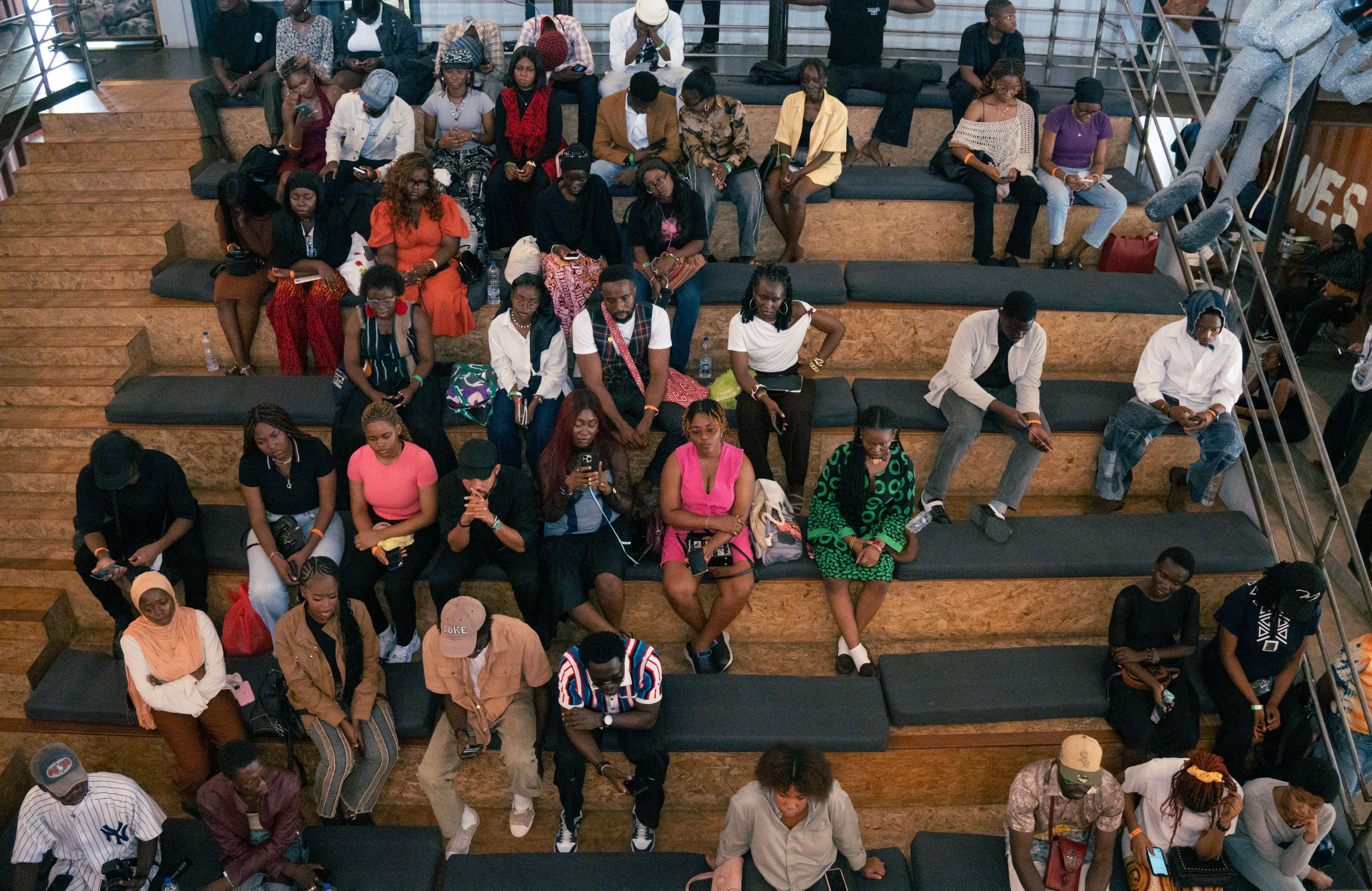
An aerial view of attendees during the panel session | Revamp Fest.
Beyond the panels, I took the chance to ask attendees what sustainable fashion meant to them. The answers were as varied as they were insightful. One participant said it was about “buying less and making the most of what I already own.”
Another put it beautifully, “It is about the intentions. It always starts from the meaning you attach to clothing.”
Their words lingered with me, a reminder that sustainability is not a fixed definition. It is a personal mindset, shaped by creativity, culture, and everyday choices.
I also asked what kind of fashion propaganda they would never fall for, and the answers came quick and sharp. One participant told me, “That people who thrift are broke. The reason I thrift is because I get to find a lot of varieties.”
Another said, “That it has to be expensive for it to be cool. I don’t think you have to spend all your money, you just have to be creative with what you have.”
Afterwards, we resumed the workshop, and this time, participants completed the projects they had been working on. The creations were stunning — macrame bags, tote bags made from upcycled clothes, art canvases crafted from old fabrics, and vibrant tie-dye pieces. Each project showcased creativity, care, and sustainability.
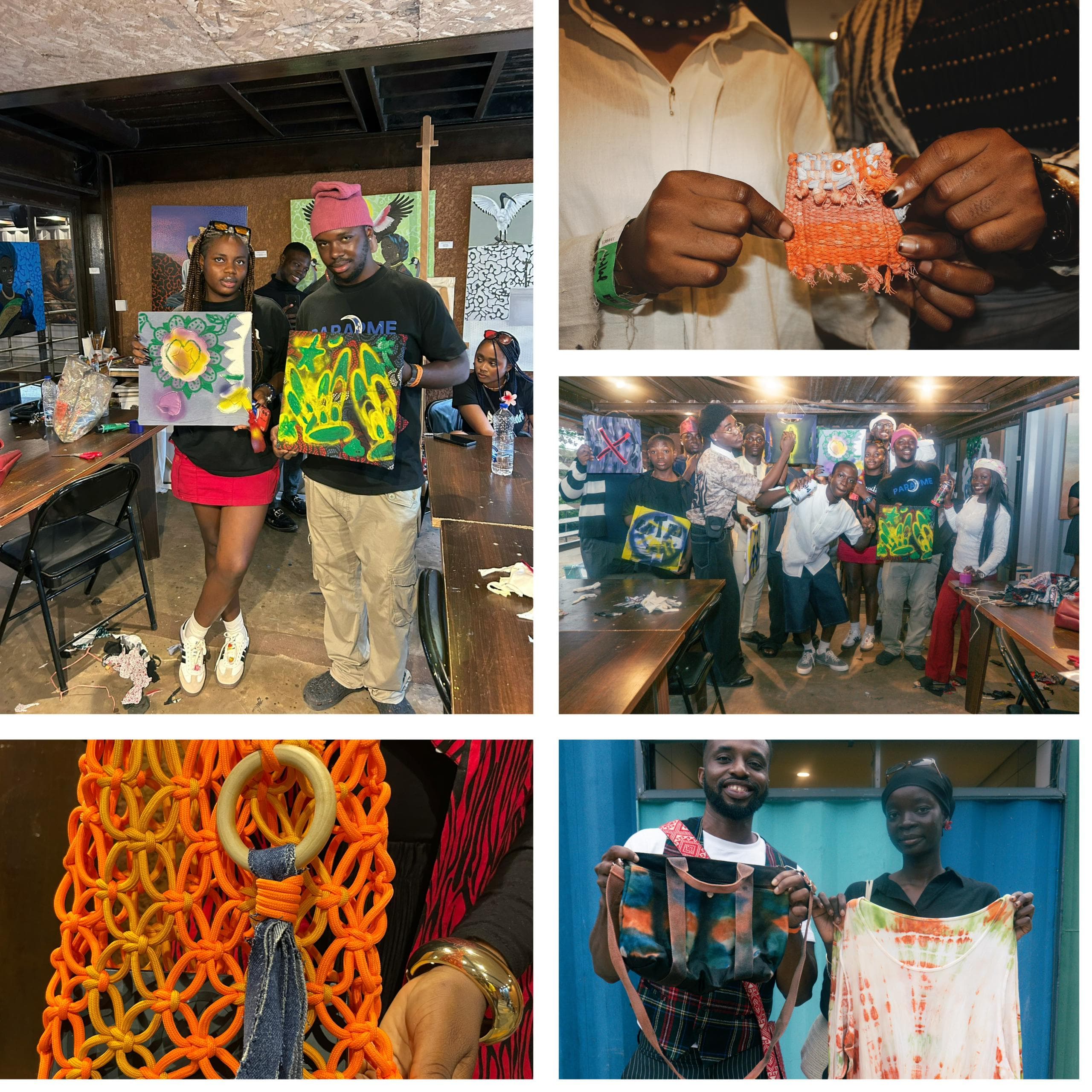
Attendees with their upcycled crafts | Images: Revamp Festival - Collage: Threadit.
The workshop was followed by an evening wellness session led by Pilates instructor, Oritsemi Jemide, giving everyone a moment to relax and recharge.
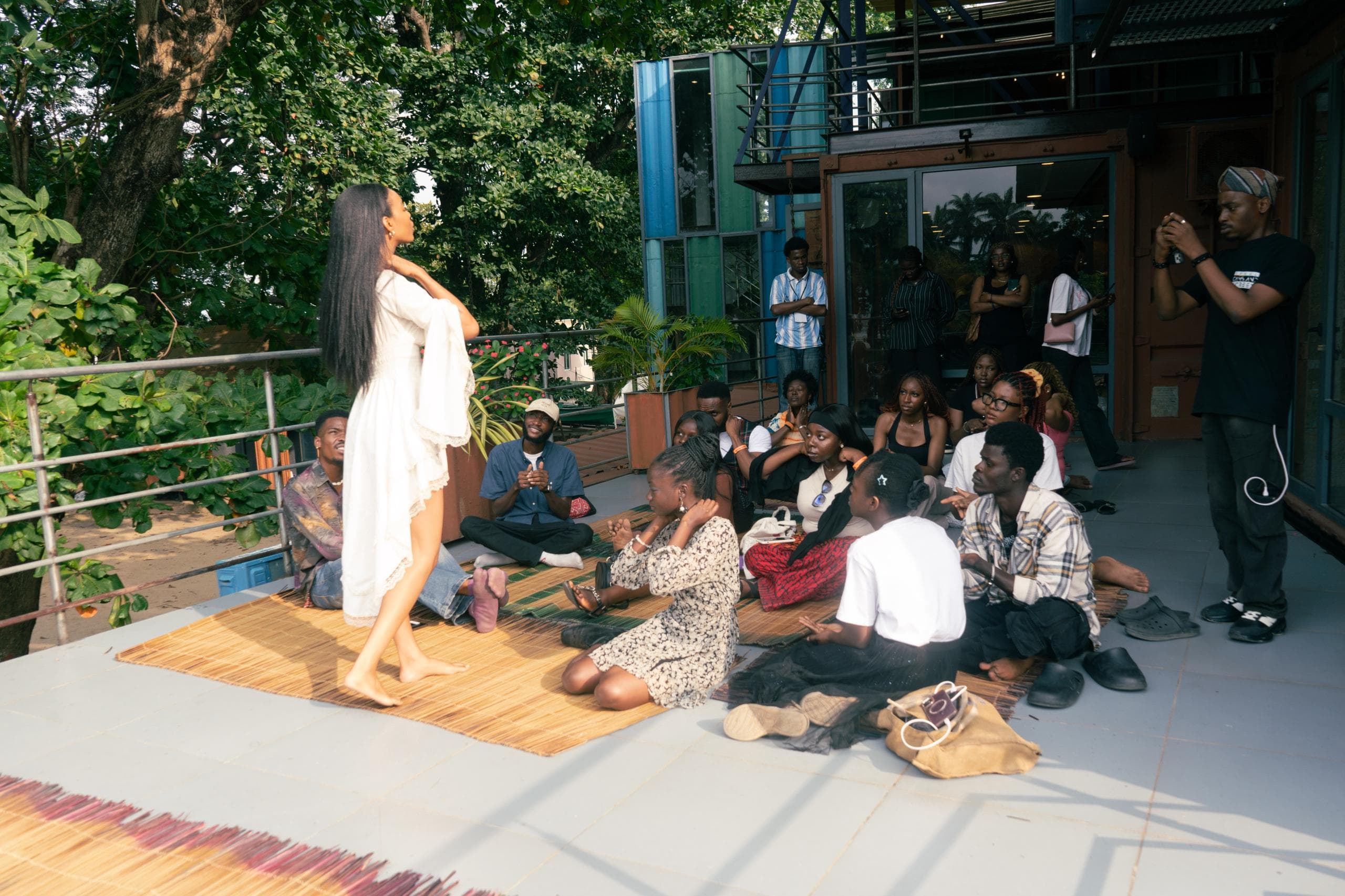
Oritsemi Jemide leads the second wellness session at the event | Revamp Festival.
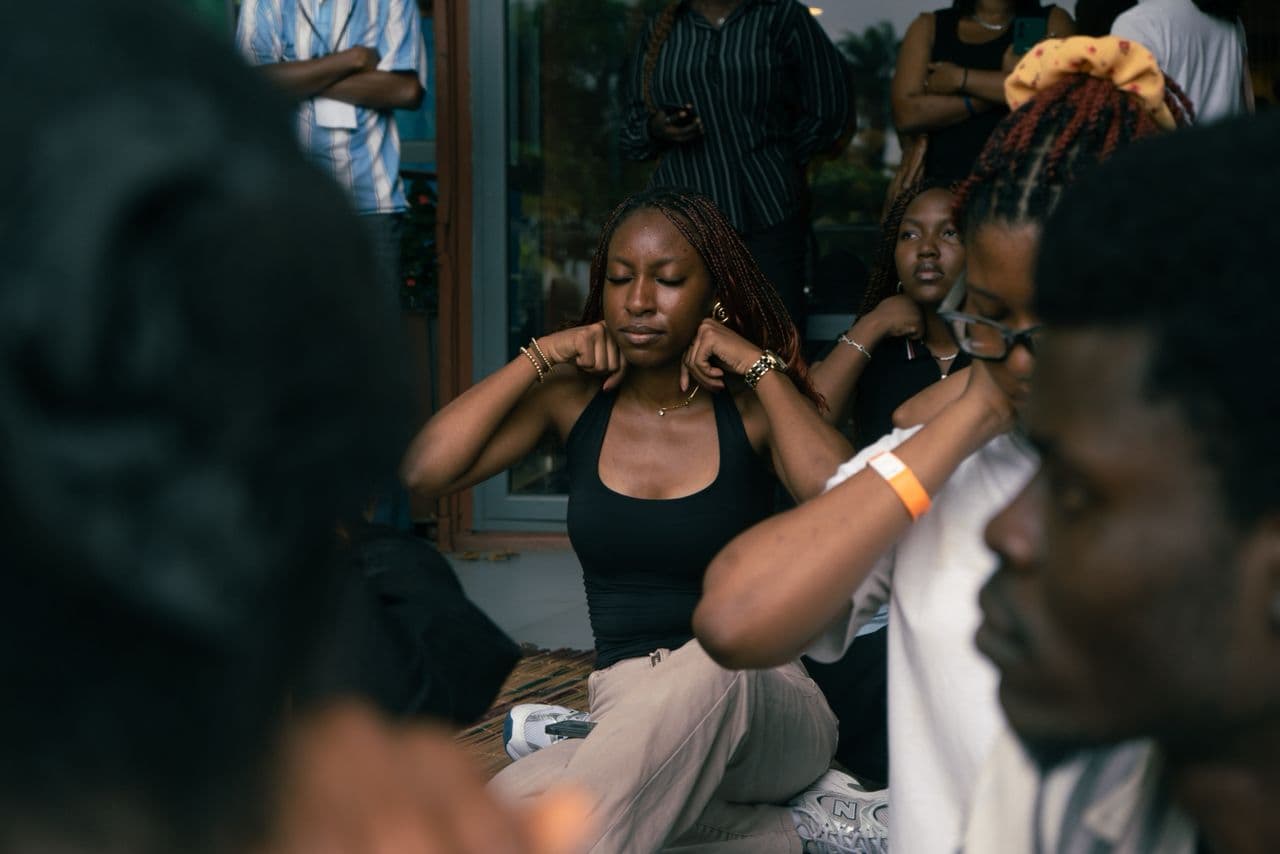
Locked in focus, an attendee unwinds as the instructor leads | Revamp Festival.
Throughout the day, I noticed how often conversations circled back to the link between fashion and wellness.
One participant put it simply: “Sometimes the way you dress can tell us a lot about how you feel mentally. There are times when, no matter how stylish you look, you’re not just in the right mood. But there are also times when, even when you’re not in the mood, there are certain outfits you pick that just brighten up your day.”
The macramé facilitator, Chibuzor, echoed this connection when I asked her about the practice.
She said, “Macramé needs your full attention, and because the knots are repetitive, you have to focus on what you’re doing. So you’re cut off from any distracting thoughts. It’s just you, your hands, and the joy of seeing a finished piece. It’s a healing craft that immerses you, and in that moment, you’re at peace.”
A significant highlight of the festival was the sewing kit Threadit assembled for participants, an upcycled denim purse with basic mending tools such as needles, threads, buttons, pins, among others. The kit encourages mending as a simple, practical way to bring sustainability into everyday life.

Threadit gave out sewing kit hampers at the Revamp Festival | Joy Oshiokenoya.
Being part of Revamp reminded me why Threadit exists: to make sustainable fashion relatable, spark conversations, and nurture a community that values creativity and conscious choices. I walked away hopeful and inspired, certain that young African fashion lovers are not just following trends but shaping a future where style and sustainability go hand in hand.
Like Post
Comments
Anonymous162
9/8/2025I’m so bummed I missed this
Anonymous898
9/8/2025I love this recap
Faith
9/8/2025I can’t wait to attend next year’s own
Related Posts
MoreHow to Declutter Your Closet in Five Easy Steps
We’ve outlined five simple steps to declutter your wardrobe and embrace more sustainable fashion choices, helping you let go of clothes you no longer need.
Crocheting 101: Can We Outrun Fast Fashion Through Crocheting?
Learn how to make sustainable choices with crochet and discover whether crochet can truly outrun fast fashion.
Interview: Summer Chiamaka Anyanwu on Winning the Maiden Edition of Miss Green Fashion
Meet Summer Anyanwu, the Miss Green Fashion Queen, redefining sustainable fashion in Africa through purpose, leadership, and circular textile solutions.
Rita Idehai, on Waste, Work, and Driving Social Impact in Nigeria
Through Ecobarter and its fashion arm, Wrep, Rita Idehai is transforming plastic waste into fabric, and creating new pathways for women and communities to thrive.